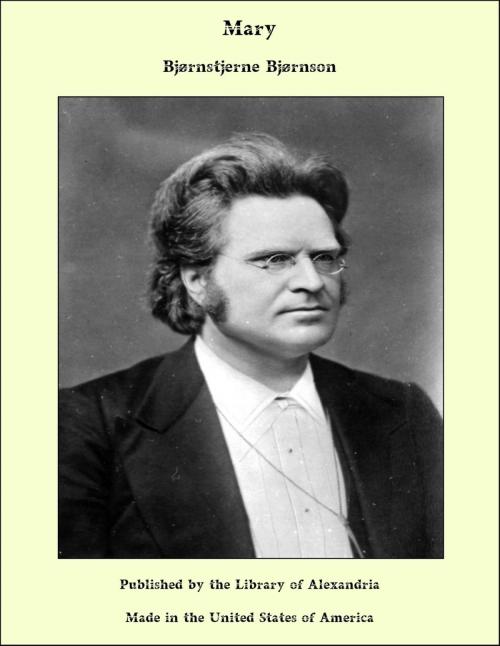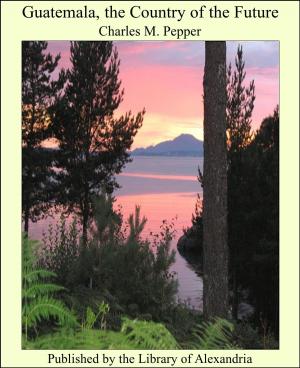| Author: | Bjørnstjerne Bjørnson | ISBN: | 9781465607126 |
| Publisher: | Library of Alexandria | Publication: | March 8, 2015 |
| Imprint: | Language: | English |
| Author: | Bjørnstjerne Bjørnson |
| ISBN: | 9781465607126 |
| Publisher: | Library of Alexandria |
| Publication: | March 8, 2015 |
| Imprint: | |
| Language: | English |
The mountains rise high on the horizon, but here they have dwindled down. The families between two long wooded ridges which project into the sea—its buildings so close to the right-hand ridge that to the steamer-passengers it seems as if a man might easily jump from their roofs on to the steep hill-side. The west wind cannot find its way in here. The place seems, after the manner of children playing at hide-and-seek, to have the right to cry: Pax! to it. And it is almost in a position to say the same to the north and east winds. Only a gale from the south can make its entrance, and that in humble fashion. Islands, one large and two small, detain and chasten it before they allow it to pass. The tall trees in front of the houses merely bow their topmost branches rhythmically; they abate none of their dignity. In this sheltered bay is the best bathing-place of the whole neighbourhood. In summer the youth of the town used to come out here on the Saturday evenings and Sundays to disport themselves in the sandy shallows or to swim out to the large island and back. It was at the left side of the bay, reckoning from Krogskogen, that this went on, the side where the river falls into the sea, where the landing-place lies, and, a little above it and nearer the ridge, the chapel, with the graves of the Krog family clustered round it. The distance from here to the houses on the right is considerable. Up there the noise made by the merry bathers was seldom heard. But Anders Krog often came down to watch them, when they had lighted fires on the beach or in the wood on the point. He doubtless came to keep an eye on the fires; but nothing was ever said of this. Anders was known as the politest man, "the most thorough gentleman," in the town. His large, peculiarly bright eyes beamed a gentle welcome into the faces of all; the few words which fell from him expressed only kindly interest. He soon passed on, to climb the ridge and take his usual slow walk round. As long as his tall, slightly stooping form was visible in the wood above, there was silence. But what a good time the bathers had here! They were for the most part working men from the town, members of gymnastic societies or choral unions, troops of boys. Their gathering-place was beside the landing-stage and the chapel. There they undressed. The main road which follows the coast passes the spot; but it was little frequented in summer; people came to the place by boat or in the small steamers. So long as the bathers kept a watchman on the ridge, they were certain of not being surprised.
The mountains rise high on the horizon, but here they have dwindled down. The families between two long wooded ridges which project into the sea—its buildings so close to the right-hand ridge that to the steamer-passengers it seems as if a man might easily jump from their roofs on to the steep hill-side. The west wind cannot find its way in here. The place seems, after the manner of children playing at hide-and-seek, to have the right to cry: Pax! to it. And it is almost in a position to say the same to the north and east winds. Only a gale from the south can make its entrance, and that in humble fashion. Islands, one large and two small, detain and chasten it before they allow it to pass. The tall trees in front of the houses merely bow their topmost branches rhythmically; they abate none of their dignity. In this sheltered bay is the best bathing-place of the whole neighbourhood. In summer the youth of the town used to come out here on the Saturday evenings and Sundays to disport themselves in the sandy shallows or to swim out to the large island and back. It was at the left side of the bay, reckoning from Krogskogen, that this went on, the side where the river falls into the sea, where the landing-place lies, and, a little above it and nearer the ridge, the chapel, with the graves of the Krog family clustered round it. The distance from here to the houses on the right is considerable. Up there the noise made by the merry bathers was seldom heard. But Anders Krog often came down to watch them, when they had lighted fires on the beach or in the wood on the point. He doubtless came to keep an eye on the fires; but nothing was ever said of this. Anders was known as the politest man, "the most thorough gentleman," in the town. His large, peculiarly bright eyes beamed a gentle welcome into the faces of all; the few words which fell from him expressed only kindly interest. He soon passed on, to climb the ridge and take his usual slow walk round. As long as his tall, slightly stooping form was visible in the wood above, there was silence. But what a good time the bathers had here! They were for the most part working men from the town, members of gymnastic societies or choral unions, troops of boys. Their gathering-place was beside the landing-stage and the chapel. There they undressed. The main road which follows the coast passes the spot; but it was little frequented in summer; people came to the place by boat or in the small steamers. So long as the bathers kept a watchman on the ridge, they were certain of not being surprised.















